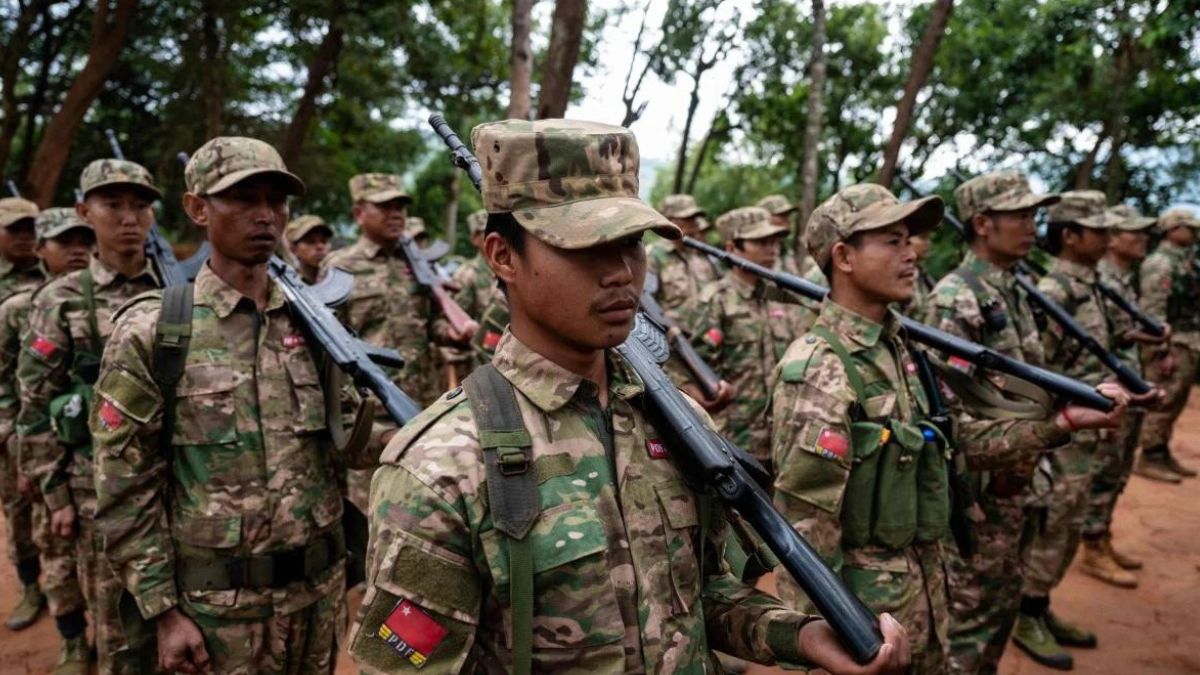Three years after the military of Myanmar junta seized power, the country faces a mounting challenge as ethnic insurgent groups rebel across several regions. The Three Brotherhood Alliance, a coalition comprising three armed rebel groups, has seized control of several towns and trade ports in the northern Shan state of Myanmar. Additionally, it has also made significant advances in Rakhine state, despite a previously brokered ceasefire agreement facilitated by China.
The conflict, noted by a rising pushback against the military junta, emphasizes the complex dynamics at play in the political landscape of Myanmar. The Three Brotherhood Alliance’s territorial gains pose a substantial threat to the control of the Junta, challenging its authority and possibly reshaping the power balance in the country.
China, perceived as having considerable influence over both the military junta and the rebel groups, has attempted to mediate peace talks. These talks, held in southwest China’s Yunnan province in the latest months, aimed to establish a ceasefire between the warring factions. Despite initial agreements to suspend hostilities, the truce quickly unravelled as fighting persisted, and the rebel groups continued to gain territory.
Beijing’s interest in stability and its role as a mediator make it likely that it will persist in using its influence to seek a permanent ceasefire. However, observers mark that the divergent interests of the military junta and the insurgent groups could complicate these efforts. The underlying ethnic and political tensions that fuel the conflict may not be easily reconciled, making a lasting resolution challenging to achieve. Meanwhile, observers say that Beijing is likely to carry on using its influence for a permanent ceasefire as it views stability as a priority.
The current situation raises concerns not only about the internal stability of Myanmar but also about the broader implications for regional security. As the conflict accelerates and external actors become entwined in the peace process, finding a viable and lasting solution becomes increasingly elusive.
A Southeast Asia specialist, Zhou Shixin at the Shanghai Institutes for International Studies asserted the fact that China had potentially been able to broker a ceasefire last month during the talks in Yunnan signalling the warring sides were interested in talking but given the volatile situation, the truce was short-lived and fragile also. He further said that the window for peace was very short and the window for maintaining peace was also very short, so they saw that a breakout quickly occurred after the temporary reconciliation. He stated, “So I think breakouts in the future will be regional or sporadic and these breakouts may be limited in scope.” As stated by the Southeast Asia specialist, Beijing has great patience and sincerity in helping Myanmar restore peace. However, it is under critical pressure because both the junta and armed groups have very high expectations for the role of China in the process.
Since the time the rebel began their attacks in October, the trade between China and Myanmar has suffered a lot. China plays the role of the biggest trading partner and a key investor of Myanmar.

